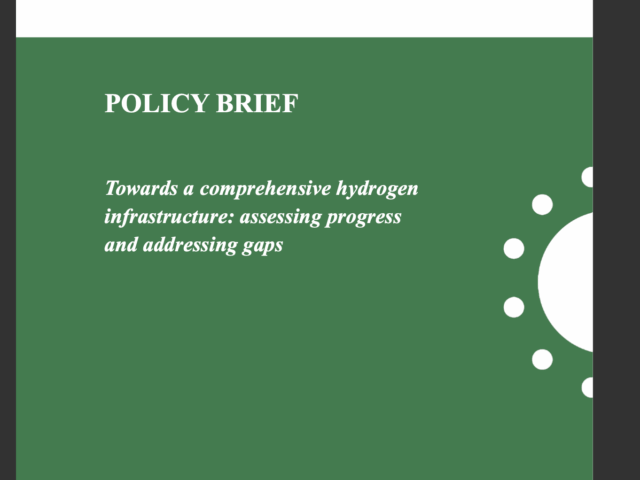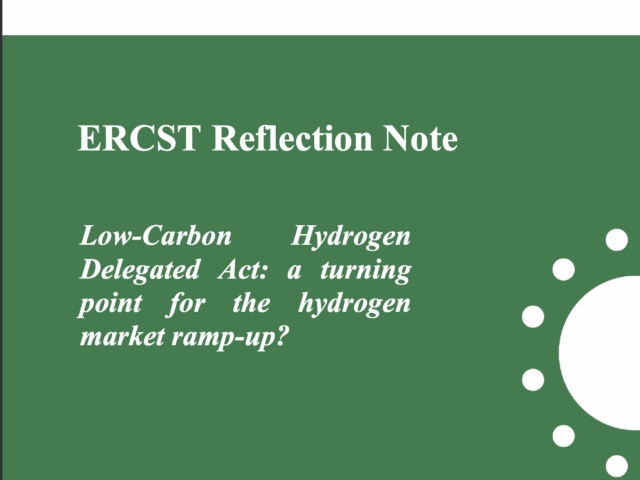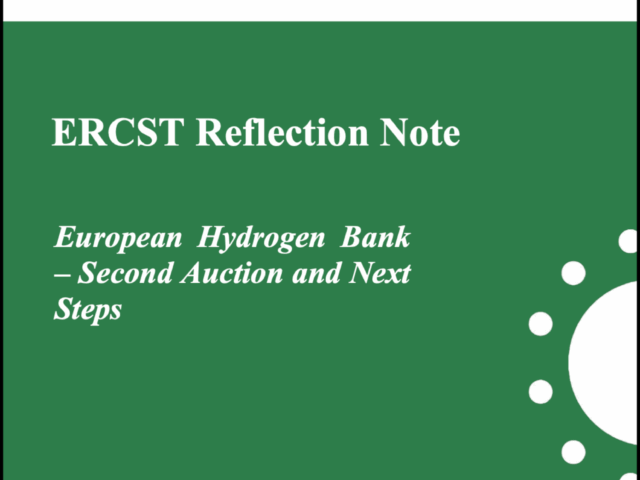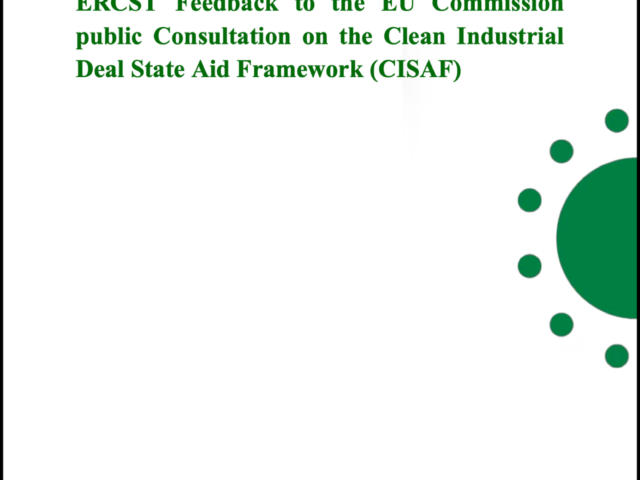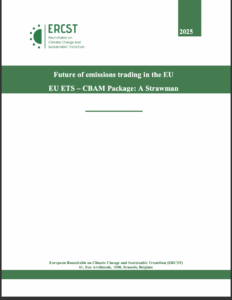Launched in early 2021, ERCST’s Hydrogen Workstream was established in recognition of hydrogen’s growing significance in decarbonising the EU’s major emitting sectors. As we progress into 2025, our focus will be on leveraging the extensive knowledge and networks cultivated over the past years. This will enable us to both enhance the foundation laid in 2021 and delve into new, pertinent topics.
RECENT PUBLICATIONS
Towards a comprehensive hydrogen infrastructure: assessing progress and identifying gaps
Author(s): Andrei Marcu, Olivier Imbault, Chiara CavalleraERCST Reflection Note: Low-Carbon Hydrogen Delegated Act: A turning point for hydrogen infrastructure?
Author(s): Andrei Marcu, Olivier Imbault, Chiara CavalleraERCST Reflection Note: European Hydrogen Bank – Second Auction and Next steps
Author(s): Andrei Marcu, Pauline Nouallet, Nigel Caruana, Marino VarricchioERCST Feedback to the EU Commission public Consultation on the Clean Industrial Deal State Aid Framework (CISAF)
Author(s): Andrei Marcu, Olivier Imbault, Chiara Cavallera, Ana RuizRECENT AND UPCOMING EVENTS
Debate – Industrial Accelerator Act: will it be the signal for hydrogen demand to emerge?
March 12 @ 14:00 - 16:00
Hydrogen, taking stock of the “Fit for 55”
September 16 @ 10:00 - 12:30Carbon Contracts for Difference (CCfD)
October 13 @ 10:00 - 12:00Hydrogen and decarbonised gas market package
December 3 @ 10:00 - 12:00Hydrogen: completing the regulatory puzzle
January 28 @ 10:00 - 12:30The International Dimension of Hydrogen
April 27 @ 14:00 - 16:00Designing Carbon Contracts for Difference
April 28 @ 10:00 - 12:00“Crunch issues” in the hydrogen and gas Directive
May 30 @ 15:00 - 17:00

